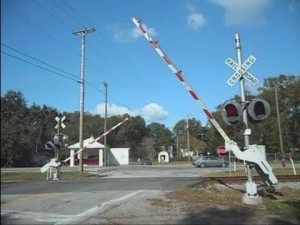The Nebraska Supreme Court ruled this week that a wrongful death lawsuit should proceed in the case of a 13 year-old Schuyler NE boy who was killed by a passing train in 2005. The 3-2 decision overruled the decision made by Colfax County District Judge Mary Gilbride; she dismissed the lawsuit in favor of Union Pacific Railroad.
The case involves the death of Efrain Ramos-Domingo, who died on July 27, 2005. He was struck by a Union Pacific train as he and some friends rode their bikes over double tracks in Schuyler. The boy waited for the eastbound train to pass before he rode into the path of the westbound train on the next set of tracks.
The wrongful death lawsuit alleges that the railroad was negligent because the noise of the first train at the crossing prevented the boy from hearing the next train.
Evidence in court showed that the westbound train that killed the boy was going 59 MPH, and hit the boy 7 seconds after the eastbound train had passed. This meant that the boy’s view of the second train was obstructed until three seconds before he was hit.
Evidence on the train’s black box recorder also showed that the horn on the train stopped sounding at least two seconds before the train entered the crossing area. Federal and company rules mandate that the train’s horn must sound for at least 15 seconds before entering the crossing and should continue as the engine passes through the crossing.
The Supreme Court found strong evidence that the railroad did not operate the crossing safely. One of the judges wrote that Union Pacific had a duty to sound the horn as the train approached the crossing. The failure to do so was strong evidence that Union Pacific was negligent, Judge John wrote.
We are very sorry to read about the needless death of this young man, but as Virginia railroad accident attorneys, we know how common railroad crossing accidents are. In many cases, injuries and deaths at these intersections could be prevented if the railroads were more diligent in honoring their obligations to the public.
For example, one of our partners once took a deposition from several railroad workers in a case where a man driving a truck was killed at a train crossing. Our investigation showed that there were no stop signs or railroad cross bucks at this crossing. Also, the railroad employees stated that they did not know that they had a legal obligation to blow their train’s whistle at the crossing. How is it possible that a full time train engineer did not know this? Previous VA court decisions established that the railroad must sound its whistle at any railroad crossing, public or private. Yet the employees had no idea that they had this vital duty.
This shows that sometimes railroad workers are not properly trained to safeguard the public, and this can lead to deadly tragedies. Anyone whose loved one died at a railroad crossing should be aware that there are strict state and federal rules regarding the duties of the railroad that operates those tracks. Sometimes the railroad fails, and they should be held legally accountable.
